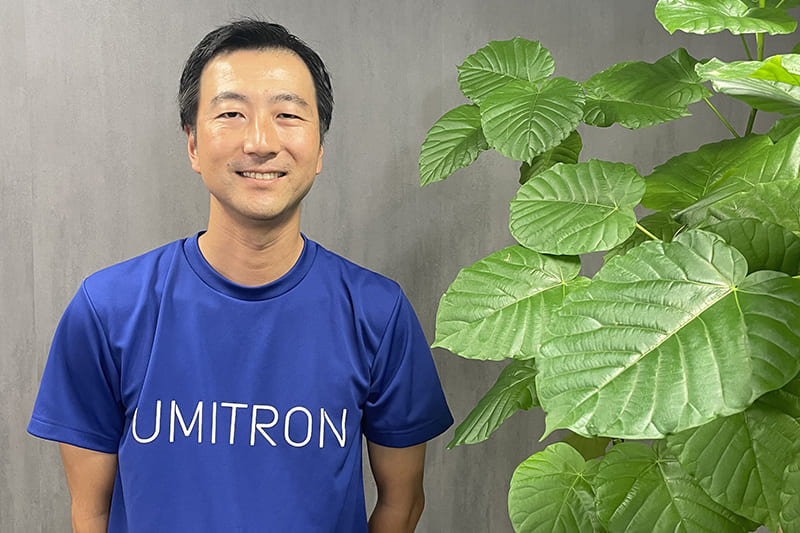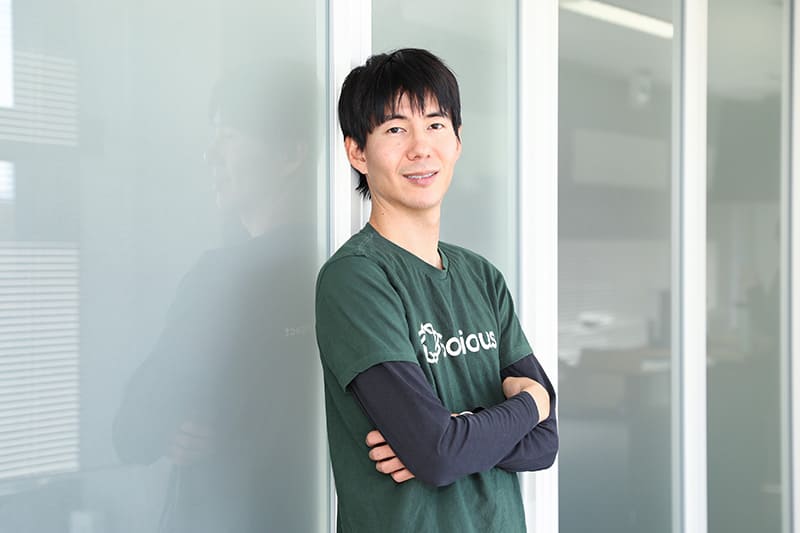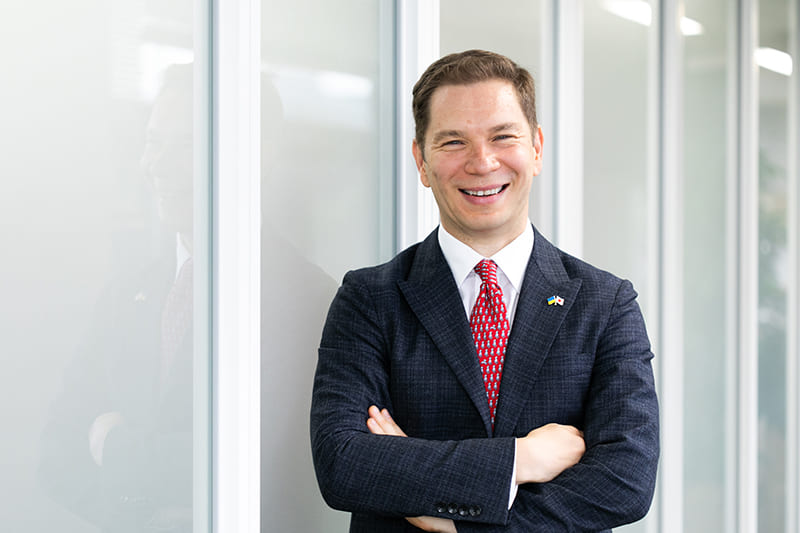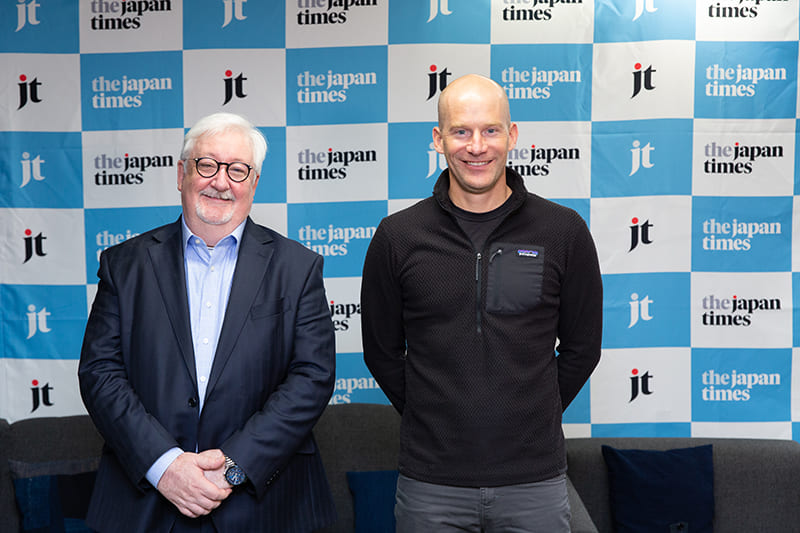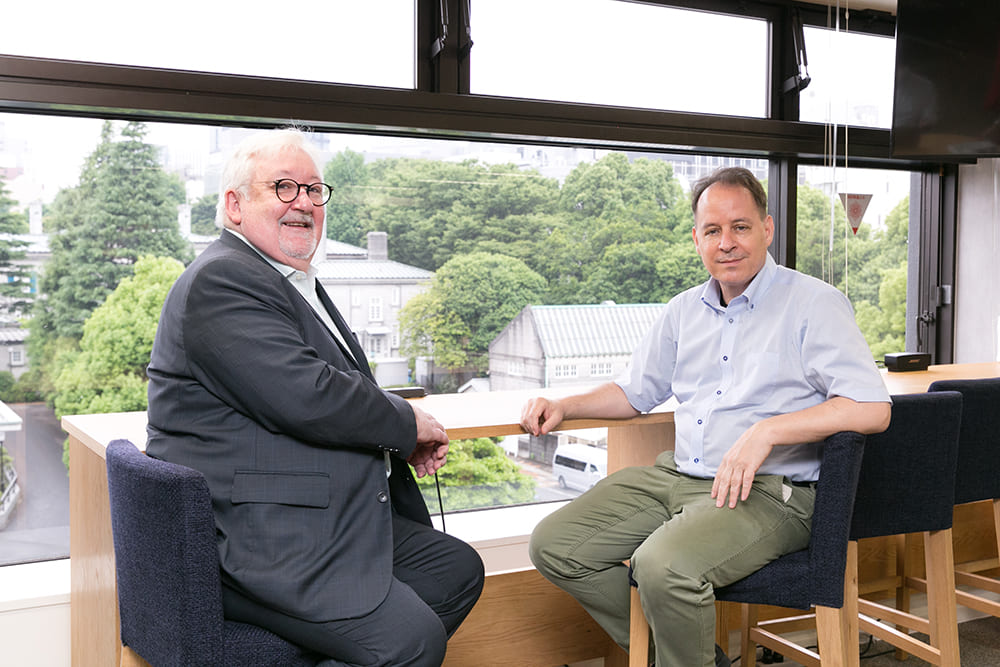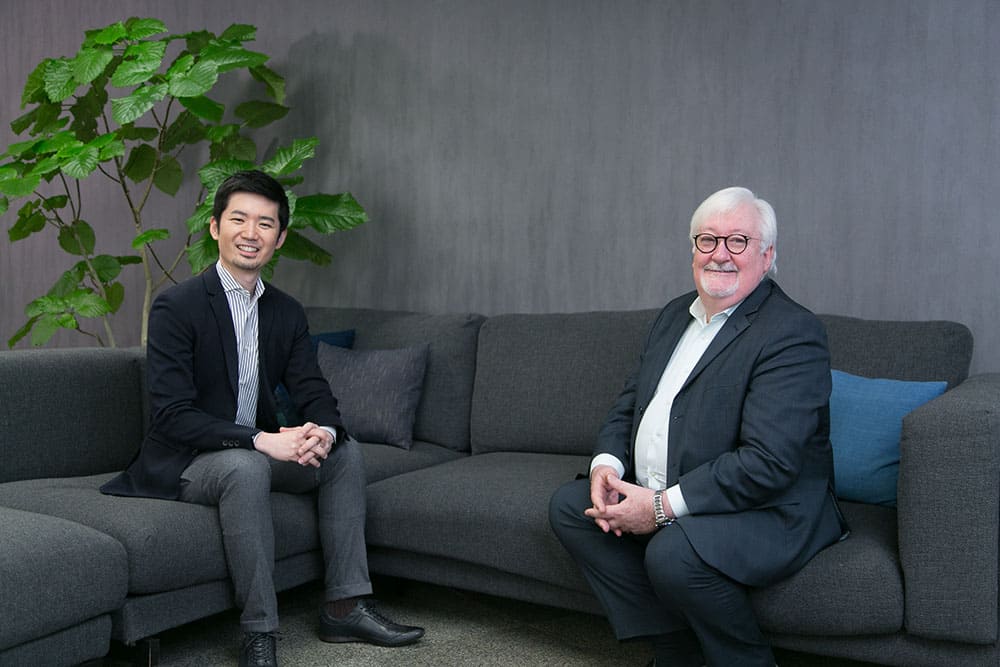October 04, 2024
Good Coffee Farms Inc.’ Carlos Melen brewed fairer trade
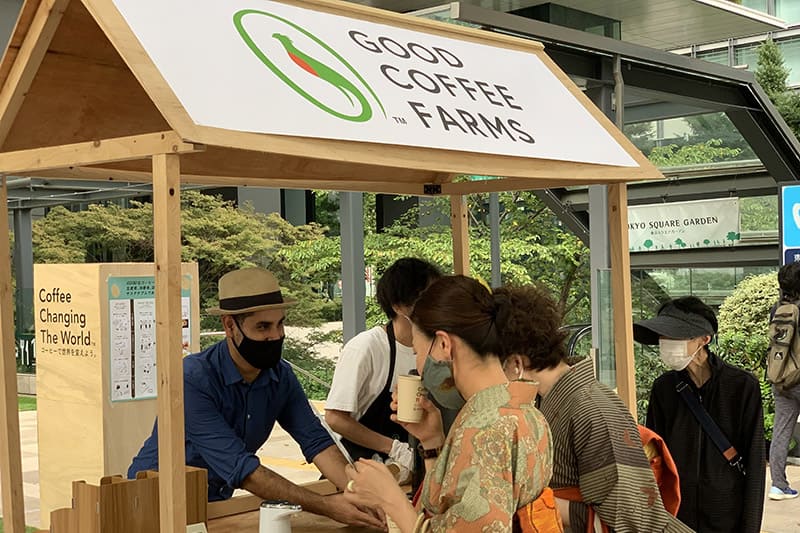
When life gives you lemons, make lemonade. When life gives you coffee, build an empire. This has been the path of Good Coffee Farms Inc. (GCF) founder Carlos Melen. In The Japan Times’ 42nd Sustainability Roundtable, Ross Rowbury was joined by Melen in a lively discussion about Good Coffee Farms Inc.’ incredible impact on the farmers who grow coffee beans, the consumers who enjoy coffee, and the natural environment their coffee is produced in.
Melen grew up in Guatemala, a country that struggled with poverty. He always had an entrepreneurial spirit, however, and opened his first business at just 14 years old, selling T-shirts. At 18, he had the opportunity to travel in Japan and was absolutely enamored with how different every aspect of life was here. He didn’t speak any Japanese or English, but felt a calling to stay. While he loved his family and homeland greatly, he “wanted to get a chance in life to do more, and so when that chance came to my life, I just thought I’ve got to take it.” What was supposed to be a few months of travel turned into 20-plus years of residence in Japan, and the journey to Good Coffee Farms Inc. began.
Upon deciding to stay, he was met with many difficulties due to Guatemala being a relatively unknown country in Japan in the days before social media and quick Google searches. When applying for jobs and apartments, employers and landlords had never heard of his home country and turned him away. When talking with Japanese people, he found that they thought Guatemala was a brand of coffee, which greatly confused him — he didn’t realize that Guatemalan coffee was such a world-famous export.
Ever the entrepreneur, he decided that the best way to overcome the difficulties he was facing as someone from a small Central American country unknown to the general Japanese populace at the time would be to start his own business. He thought of the saying “When life gives you lemons, make lemonade” and asked himself, “What is my lemon in my life?” With this incredibly positive mindset, he turned his “lemon’ into a global business that specializes in his homeland’s most famous export: ethically sourced and sustainably produced coffee.
His first venture into the coffee industry was a company called Darks that created beautiful, luxury coffee gift sets. It did pretty well, to the point of gaining media attention back home in Guatemala as the first overseas luxury Guatemalan coffee brand. As the business progressed, he began getting a lot of questions from consumers about how coffee is produced, including its environmental impact, and the labor that goes into growing it. This prompted him to investigate his production pipeline more deeply, and he went to Guatemala himself to learn more. What he found did not sit well with him at all.
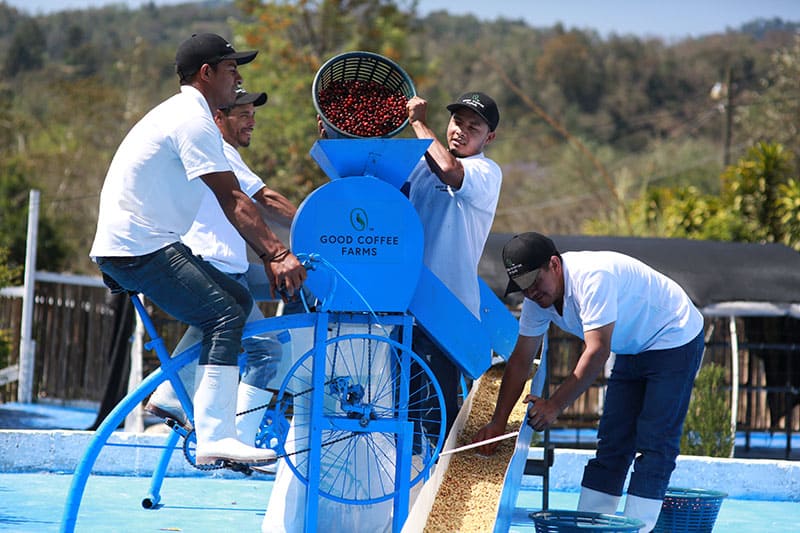
The norm in the coffee businesses is for factories and middlemen to take the lion’s share of the profits, with whatever is left over distributed to the farmers. However, the money these farmers get often is actually less than the money needed to grow the plants themselves, leaving the farmers in perpetual debt. All the beans supplied to Melen’s company were produced by farmers living in poverty, and as someone who came from a similar background he became determined to find a way to pay the farmers fair wages.
Many people don’t realize that while coffee businesses are often massive global entities, the farms that the coffee comes from are small and pool their crops together to be sent to factories. Coffee trees produce fruits called cherries, from which coffee beans are extracted and processed. The factories require a great amount of electricity, water and fuel, and produce quite a bit of waste. It is also impossible to trace coffee’s origins once it reaches a factory because all of the beans are mixed together.
Upon discovering these environmental and economical issues within his industry and understanding that he could not force the market to suddenly start paying higher prices for his coffee, Melen realized he could no longer operate within the norm and would have no choice but to develop a completely new business model.
He laughed as he recalled the number of people who called him crazy at the beginning over his radical solutions. In order to make sure that farmers were being paid enough to stay out of debt, Melen completely cut out all of the intermediaries — including the factories that wastefully processed the coffee cherries. This left him with quite a massive problem to solve: how to process the cherries? He needed “a real solution to a real problem,” he said.
He learned how to grow coffee himself, and developed a completely new way to process coffee cherries that eliminated the need for heavy machinery: a bicycle-powered machine of his own invention that can separate the beans from their husks without using any electricity, fuel or water. Because farmers could use this bicycle to process their own coffee, Melen now could control the entire production process from the original crops all the way to distribution.
Not only do the bicycles help him provide his farmers with fair wages, they also eliminate most of the environmental impact. Melen can also now trace all of his beans directly back to the farms they came from. While he was initially met with resistance from local farmers who dismissed him as a crazy kid with a bunch of bicycles, once he was able to show the results of his invention the business spread like wildfire. He started getting positive press coverage, and grew his network from three or four farmers to over 200 in just a few months. He now works with farmers not only in Guatemala, but has expanded into Colombia and Brazil as well. Good Coffee Farms Inc. is now changing the lives of hundreds of farmers while also protecting the natural environment their crops are grown on. Melen said, “I see myself as more than a producer or sales guy. … I’m building communities.”
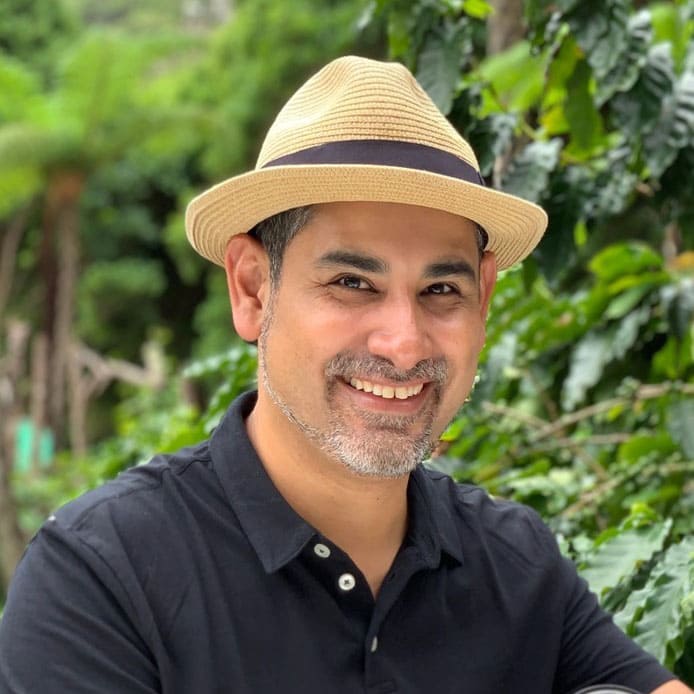
It took two years of overcoming red tape for Melen to find the right channel to import his coffee into Japan. There were a lot of challenges, and he was also met with resistance on the Japanese side. His hard work paid off, and even though he had no connections with roasters or wholesalers in Japan, he believed in his idea and products so fiercely that he strode forward with confidence. He brought 7 tons of unroasted green coffee beans and one of his bicycles to the largest convention of coffee roasters in Japan. Not only did he establish relationships and friendships that would help him establish his distribution network from Hokkaido to Okinawa, he blew the minds of other farmers from around the world who had never seen anything like his bicycle before. They were so excited about it that he invited them to Guatemala to ride the bicycle and see the farms that use them.
Once he saw how much people loved the bicycles and the experience of visiting the farms, he developed MyFarm Keiyaku, which allows Japanese roasters to co-own his farms and send people to them to work alongside Good Coffee farmers. This allows the Japanese roasters to create their own recipes of coffee while choosing the variety they would like to farm, plus tell their customers that they have their own farm in Guatemala without having to actually buy land and take resources from the local population. Several Japanese roasters with five- to 10-year contracts currently travel to Guatemala during the harvesting time under this program.
Good Coffee Farms Inc. currently brings in about 50 tons of coffee per year, purchased by many of the top coffee roasters in Japan. Melen talked about how Japan is a massively important country within the global coffee trade because Japanese roasters are willing to pay premium prices for the highest quality. Because the Good Coffee Farms Inc. bicycles don’t require water to remove the coffee beans from the husks, a lot more flavor is retained and the result is sweet, well-balanced specialty coffee. Good Coffee Farms Inc. has even opened a shop near Tokyo Station where people can taste his different coffees. Looking to the future, his goal is to expand his farms to Ethiopia and Indonesia, and distribute to more and more countries across the world.
It is safe to say that by staying true to his conscience, remembering his roots and believing in his mission to change the world with coffee, Carlos Melen has successfully turned his lemons into lemonade.


